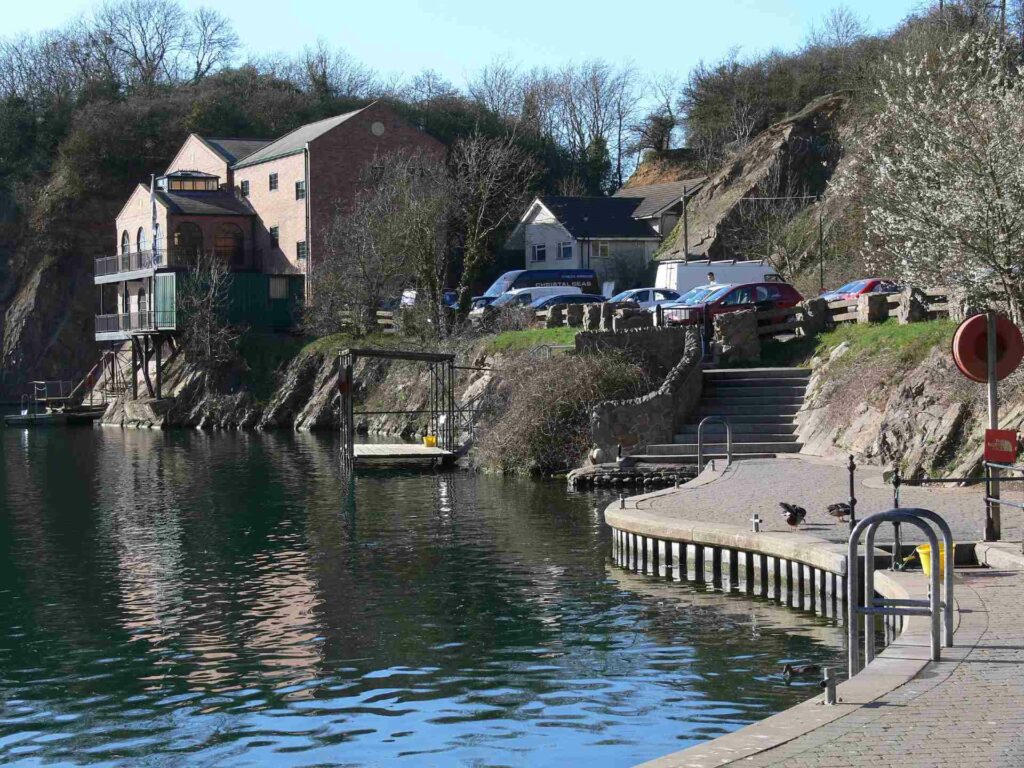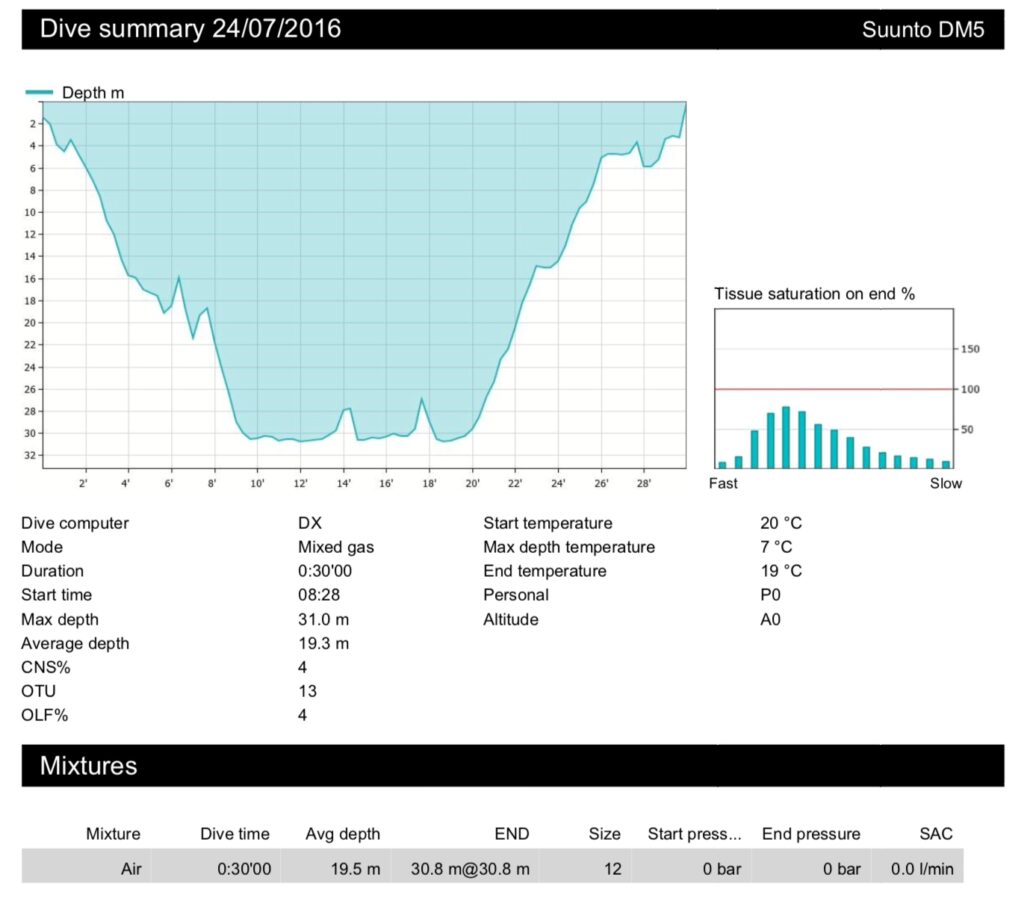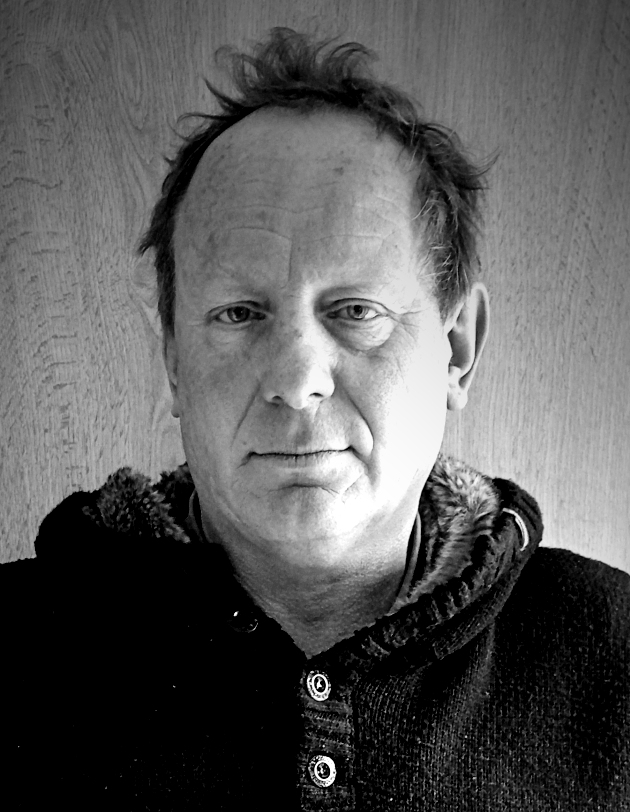NIGEL CRAIG still gets flashbacks and he no longer wants to dive, let alone instruct. He talks to Steve Weinman, reliving the Sunday morning dive at an inland dive-site that turned his life upside-down – and the nightmarish chain of experiences that ensued
Imagine opening your morning post to find a letter headed: “Court Hearing Scheduled… You are charged with the offences listed here: (1) Manslaughter 24/07/2016.”
There had been no prior warning, but the date sets your mind flashing back to one of your last dives, more than four years earlier.
“I can shut my eyes and see that dive,” says Nigel Craig. “Many a night I sit up till 3 o’clock in the morning, just trying to get it out of my mind. After talking to you, I probably won’t sleep tonight because it’ll be going round in my head.”
We’re sitting in a Portakabin on the muddy construction site where Nigel is getting stuck into building himself a new home. He has shown me the plans – it’s a very attractive five-bedroom house.
He agrees that not only is it house-building he is undertaking but a form of occupational therapy. It might help to keep his mind off the incident that started in the deepest part of the Leicestershire dive-site Stoney Cove eight years ago, and has haunted him ever since.
His case was perhaps the one that finally made scuba divers, in the UK at least, wake up to the dangers of IPO (Immersive Pulmonary Oedema). But when it all began in 2016 Nigel, like most of us, knew nothing about the condition. He does now.
The background

Nigel, who is now 58, grew up in Daventry in Warwickshire, moving the 14-odd miles to Northampton when he married his wife Della, a nurse.
On leaving school he had started work as a plumbing and heating engineering apprentice with a company that also gave him the chance to get experience in everything from bricklaying to plastering. It was a solid grounding, and by the time he was 24 he was working as a self-employed builder.
It was not until his late 30s that he took up diving. “I’d always wanted to dive, always had a fascination, always snorkelled,” he says. He completed his Open Water Diver qualification with local outfit Dive Northampton in 2005 and did some UK diving before continuing his training with Advanced OWD and Rescue Diver in Menorca, where he had a second home at the time.
Back in the UK, Nigel went on to become a PADI Divemaster and Open Water Scuba Instructor with Dive Northampton. He started working with the centre in 2009, always on a voluntary basis, just for fun and free air. “That’s what always gets everybody – we even paid our own Stoney fees!” he says.
He progressed to MSDT in 2010, Staff Instructor the following year and by late 2013 was a Master Instructor (MI). He would dive recreationally in Menorca, the Maldives, Malta and Egypt, but all his teaching was in the same place. “You could spin me round in Stoney, put a black mask on me, swim me somewhere and I’d find my way, definitely.”
‘Goldenballs’

Dive Northampton was all about team-teaching. “I used to enjoy doing a lot of classroom stuff, especially for Open Water. I must have taught hundreds just in the classroom, then handed them over to another instructor in the pool, who would take them to Stoney.
“Or I’d do a fair bit of Advanced and hand them over to another instructor to get them a cert. I wasn’t interested in getting thousands of certs – I was just interested in teaching and diving.”
He took pride in being a good instructor. The nickname “Goldenballs” stuck after he had scored a 5/5 on virtually all the 20 skills on the instructor dive-skills circuit, and dropped only one point on his OWSI exam.
And however many times he might have supervised a course, he would often sit up the night before to go through the standards again, “just to make sure that what I was telling the student the next day was 100% accurate. I’m the same with building, I double-check everything – it’s just the way I am”.
“People sometimes said I was big-headed, but I would say I’ve got something to be big-headed about – you don’t get to MI if you don’t know what you’re doing.”
He also prided himself on straight-talking to his students. “I would actually tell people: You f— up, you’re dead. That’s it. I’m not glossing it over and I don’t want you to gloss it over, because we humans are not designed to be down there. We have a piece of equipment that keeps us down and it only lasts so long. You muck it up, you ain’t getting out.”
The build-up

Electrician Richard Stansfield, 40, was a recently qualified PADI Advanced Open Water Diver and had done 30 or so dives by that summer of 2016.
The four-dive Deep Diver speciality course was held on two Sundays of each month and Richard had done the first day the previous month with another instructor but missed the next, saying that his elderly mother was ill. Now he was booked in to complete it with Nigel.
“I always used to drive the DN van to Stoney, so I would go in on the Saturday to make sure it was loaded with whatever we needed, checked the students we’d got and what courses they were doing, because on the day I’d be in charge as the highest-rated.
“Then I’d check my student and do his paperwork. Initially he seemed fine. Big bloke, keen.”
Nigel had requested Karol Tokarczyk as his divemaster, having trained and certified him and worked with him a lot. “He would be doing what he needed for the student, but never too much. I could rely on him. He was also IANTD deep-trained, he’d been to 80 or 90m and his goal was 100m.
“I never ventured into that – I did the trimix course for gas-blending but the diving didn’t appeal to me. What you can’t see at 20 or 30m in most places isn’t worth seeing.”
Nigel also knew that Karol had worked with Richard on his OWD and AOWD courses, although his only feedback had been that he was “a bit overweight – let him take his time”.
The descent

The dive was scheduled for early Sunday morning, 24 July. Karol filled in the dive-log before Nigel gave the briefing, taking a bit longer than usual because he and the divemaster were on twin-12s, while their student had a single 15-litre tank.
“We went through what would happen if we needed to change air, went through the dive-plan, double-checked compass with him, kitted up and buddy-checked.
“At Dive Northampton you did not get in the water unless you’d done a buddy-check. Everything was always very thorough there – students see the instructors doing it properly and automatically think: that’s what you’ve got to do.”
At the “Bus Stop” the three entered the water, did a weight-check and swam in leisurely fashion to the buoy. They spent some time at the surface chatting, because there were bubbles on the shotline. Nigel preferred to wait for the other divers to surface rather than risk his student being disorientated by the bubbles on descent.
They started dropping but Richard soon signalled an issue with his ears. “Karol levelled him, I stayed always in visual contact. He might not have done a free descent like that before, but going down a shotline you can lose track of speed. Anyway, Karol sorted it out and we carried on down.”
At the bottom

With bubbles coming from the bottom, Nigel went ahead to check and noted two other divers just swimming away. He conducted the others down and knelt Richard on the Hydrobox, which rests at at 35m, to check skills.
Asked for an air-reading the trainee indicated 150 bar, though they would later discover from his computer that he had been down to 130 by then.
“What he told me was fine for what we were doing, a reciprocal compass swim. Ninety per cent of the students come off the Hydrobox and go down – they’re negative and don’t add air because they’re concentrating on the compass. Karol would have been one side, I’d be slightly above and to his right, holding his tank-valve and shining my torch on his compass.
“We only got a few fin-kicks away, turned him round back to the Hydrobox amd got him to think about adding air to his drysuit and going on.
“They picked up later that I should have done an air-check then. With hindsight, yes, but he’s a qualified diver, past Advanced and doing a speciality – in my eyes he should be checking as much as me, if not more. I’m just watching him do a skill on his own.
“I could have blamed Karol as his buddy for not checking, but we didn’t check, that’s the long and short of it. In the grand scheme of things it was irrelevant to what happened, but they nailed me on that for a few hours.”
Richard set off again, and this time it was a perfect swim. “Tap him on the head, turn him round and he has to go back on the reciprocal heading. You know then whether he’s narked – if he can’t look at a compass and know where he’s going to go back to, you know there’s a chance of narcosis.
“When you’re 10m from the Hydrobox you can’t see it, so you’re reliant on that compass, but he came back smack-bang to where we’d left. So there was no way he was narked.”
At this point Nigel asked Richard for his air, and he indicated 60 bar. Karol double-checked it. “We were coming up anyway but it was: right, we’re up.”
The ascent

Leaving the required five-point ascent (Signal, Time, Elevate, Look, Ascend) for later, they set off up the shotline level with each other, maintaining eye-contact. Nigel indicated to Karol to keep eyes on Richard’s gauge and at 20m told him to share air. The divemaster passed over the regulator from which he had been breathing, because that one had a 2m hose.
“Richard was quite relaxed at that point, no issues at all really. He might have been breathing a bit heavier but we’re going up and we’ve got loads of air.
“Anyone at Dive Northampton will tell you: ‘Nigel doesn’t breathe’. I could have done all three of the deep dives Richard had to do on one twin-set, no problem.”
Continuing to ascend, Richard suddenly gave an out-of-air signal. “We purged the reg and it was fine, air coming through. We maintained eye-contact and calmed him down. My head was going then – what was that? We carry on, and then we get an out-of-air again.”
At this point Nigel gave the student his own regulator, wondering if Karol’s reg could be playing up. What else could it be? “Calmed him down again, fine, and brought him up to the safety stop.”
The Health & Safety Executive (HSE) later agreed that the dive profile had been “really good”, says Nigel, with no fast ascent (see below).

Stop to surface

“We all got neutrally buoyant, and then Richard had a bit of a panic and tried to bolt,” says Nigel. “That’s when I really got slated in court, because I grabbed him – but that’s PADI training. You don’t let anyone, especially a student, just bolt for the surface, especially when you know they’ve got a working regulator with air – totally different scenario.
“Kept him level, buoyancy went down a bit. I indicated to Karol to watch him, because I’d got hold of him and dropped down a bit, because I was wondering what was going on and was catching my breath a bit.”
The safety stop was virtually over when Karol nudged Nigel. “I looked up. Richard’s eyes had gone, and then his regulator dropped out. I pushed it back in and indicated to Karol: I’m going up.
“He was showing a minute but could have been on the last few seconds. I put some air into Richard’s BC, filled mine and took him up to the surface, laid him flat.”
Nigel found that Karol had already managed to remove the student’s weightbelt. “I shouted for the boat, got his mask off and regulator out and started rescue breaths. Within seconds Karol was there next to me, but I’d got him.
“They launched the boat. We helped him up, dragged him in, they took him and we were left to swim to shore, got out and said: ‘What the hell just happened?’ We couldn’t understand it at all. People were concerned but no-one really wanted to approach us. Some of the staff were crying.
“After sitting there I got my head into gear a bit and we got some information that he was breathing. Then we got information about cardiac arrest… then we got told: ‘You saved him!’”
The police arrived and a constable took Nigel and Karol into one of the rooms at the dive-centre for an interview that would last more than two hours. “We weren’t under caution or anything, it was literally a chat about what happened, but that interview was later used in court.
“The copper wasn’t a diver and he wrote everything down. But some things, when we read it afterwards, I’d think: I didn’t say it like that, there’s no way I would have used those words.”

Nigel had to wait while events played out before he could drive back with Karol. “I got back to Northampton and everything was very sombre. Most people stayed away from me, because the emotions were there.
“I got in the car and had just parked at home when I got a phone call to say he’d died in hospital, and that was it. He’d lived six hours.”
Four-year lull

A post mortem examination took place soon afterwards, to be followed by two more at a later stage, but the coroner could not establish the cause of death.
Then the pathologist who had carried out the post mortems himself died. “That to a degree is why we think the case got left,” says Nigel.
Tablets found at Richard Stansfield’s house indicated that he had suffered from hypertension. He had been on a prescription for the past 10 years but this had not been declared on the medical self-declaration form he had filled in at the dive-centre.
In the attempt to save Richard’s life he had been placed on dialysis, which had cleansed his blood, though later tissue tests would establish that he had used cocaine at some point before his death.
Nigel had also heard unofficially that Richard, an electrician, had suffered a severe electric shock the previous month, woken up in hospital but, not wanting to admit to that, had made the excuse about having to look after his mother when postponing the second part of his course.
Potentially high alcohol levels were also found but dismissed, says Nigel. But all this medical evidence would not be revealed to the instructor and his legal team until years later, after the charge had been brought.
“We had done an interview at the police station and I had to report the incident to PADI, but then nothing really happened,” says Nigel. “The chief constable at the time had said: ‘No further action.’ The Health & Safety Executive (HSE) had investigated and said: ‘Nothing to blame – no further action’.
“I got notification back from PADI Bristol that they couldn’t decide on the report so it had to go to PADI America. After about a month I was back in teaching status – they’d cleared it.”
Had people been generally supportive after the fatal incident? “Basically people just forgot about it. I took a back seat. I went in and started doing a bit of training again, but to be honest my head had gone. I shadowed a couple of other instructors but didn’t really do much again after the incident.” He hasn’t dived at all for more than four years now.
Charged

“So it had pretty much settled and gone away by the time the letter arrived,” says Nigel. That was in September 2020. A few months earlier his solicitor had told him she would be contacting the police about getting everything closed down. “There had been no new evidence, nothing, so I’d been getting over it a bit.”
The case did not appear to have been revived as a result of pressure from Richard’s relatives – according to Nigel, he had only his mother, who had not been interviewed, and his girlfriend’s interview had been “20 lines if that”.
But he believes it was one particular detective constable, a non-diver who had discussed the case with a police sergeant who was a diver, who had decided for whatever reason that the matter should be taken further.
The two officers called Nigel in for an interview that he says had shocked his solicitor. “They hit us with all this information such as Richard’s computer download, and we didn’t even know about this evidence. It was brutal – we thought we were just going in for an informative chat, and they hammered us.”
It was the detective who first suggested to Nigel that the instructor had deliberately held the trainee down under water, and that it was this action that had led to his death.
IPO

Immersive Pulmonary Oedema (IPO) affects surface swimmers and snorkellers, and can be brought on by cold, over-hydration, stress or pre-existing cardiac disease or hypertension.
If it happens to scuba divers it can be exacerbated on ascent by the reduction of partial pressure of oxygen in the lungs and arterial blood. The effect is to increase the permeability of blood vessels in the lungs, leading to fluid accumulating in the tissues.
This can cause a diver to feel unable to breathe, and explains out-of-air signals given by a diver who has a working supply.
Other symptoms can include coughing, chest pain and decreased ability to oxygenate the blood and, if not treated promptly, drowning or cardiac arrest can follow. If this occurs, the condition can be very difficult to distinguish from external drowning in a post mortem examination.
But in 2016 IPO was little understood by divers or diver training organisations. No training as to the signs and symptoms was given at the time, even though the condition had been described by UK diving doctor Peter Wilmshurst way back in the late 1980s.
Had Nigel Craig been aware of IPO at the time of the incident? “No, never even heard of it. I ended up learning quite a lot about it, especially talking to Peter Wilmshurst. He’d been banging on about if for years, and no-one had listened to him.
“When I heard about IPO it gave a sense of – perhaps that’s what it was. That would account for the out-of-air, for definite.”
He pays tribute to Bob Archell of his insurer Dive Master – “Bob was absolutely brilliant” – and they ran with that idea that it was an IPO that had affected Richard Stansfield. “That’s when they got Peter Wilmshurst on board.”
Crown v Craig

Nigel spent a month staying at a Premier Inn while attending his trial before a jury at Leicester Crown Court. The charge was manslaughter by gross negligence and the prosecution, James House QC, opened with a bombshell – the accusation that Craig had held a drowning man under water against his will on a non-essential stop that had led to the student panicking and, ultimately, to his death.
This was quickly picked up by local press covering the case, and then circulated more widely under lurid headlines, immediately branding it as the “safety-stop” case.
Divernet in fact waited until the end of the trial and Nigel Craig’s discharge before running a report. It had seemed likely at the time that, as ever, there might be two sides to this story.
Barrister James Heyworth defended Nigel, instructed by his solicitor Lisa Morton. Both lawyers are experienced divers. A PADI Divemaster and Master Scuba Diver, Heyworth had dived since 1993 and was also a diver supervisor in the military. He had come across IPO before.
The Royal Navy’s Commander Christopher Baldwin, a military rather than recreational diving expert, was brought in by the prosecution as an expert witness. “He basically hammered me in court for nearly two hours, said I was an unfit instructor, shouldn’t have been instructing, did everything wrong, didn’t even plan the dive properly,” says Nigel.
“He even had the audacity to say that the only reason we didn’t hit decompression was a fluke. It was so frustrating. It was late in the afternoon and my barrister had only just started questioning him when the judge stopped him and said we’ll carry on tomorrow.
“Whether Baldwin looked in the mirror that night I don’t know, but the next day he was a totally different person. Dropped all his accusations.”
The defence

Called in for the defence, IPO expert Dr Wilmshurst had joined HSE diving inspector Mark Renouf – a witness for the prosecution – in testifying that the case bore all the hallmarks of IPO.
The doctor explained that Richard Stansfield’s undisclosed hypertension, even if being treated, would have put him at higher risk of oedema and sudden cardiac arrest if diving.
It was not known what effect the cocaine in his system might have had at pressure, though it could have played a part.
Technical diving guru Kevin Gurr had also been “absolutely brilliant”, says Nigel. “He went through all the tables, because they were saying I ran out of air but of course nobody ran out of air because there was still 20 bar in his cylinder.
“As Kevin said, even on the consumption rates we were on, he should have surfaced with 80 bar. So I did nothing wrong in that respect.”
Answering the accusation that Richard should have been taken straight to the surface, Kevin Gurr had said of Nigel: “‘He’s not a doctor, he’s under water, he’s getting responses back, he’s doing what he was trained to do – that’s it. He can’t service the kit down there’. And we knew nothing about IPO, so basically he said: ‘You can’t blame him for anything‘.”
When after several hours of deliberation on 30 March the jury failed to reach a majority verdict, the Crown Prosecution Service eventually informed High Court Judge Mr Justice Pepperall that it would be producing no new evidence for a retrial. He duly recorded a not guilty verdict.
“On 3 April I had to go back to court, just for the judge to say not guilty,” says Nigel. “We knew from the Friday before that the case was being dropped but I had to go in the dock as a criminal to hear that. How humiliating!”
The detective constable who Nigel says was the prime mover in prosecuting the case came up to him in court afterwards. “He tried to shake my hand and say no hard feelings.” Nigel declined.
‘Unpleasant taste’

Because of the hung jury, decline of a retrial and subsequent dropping of the case ”Nigel’s name has never really been cleared,” his solicitor Lisa told me. “He was certainly not convicted, but no-one has ever said he was not guilty as such.
“I think that this left a particularly unpleasant taste for both Nigel and his defence team. As an individual it is of course possible to look back at a situation and think that things could have been done differently – but to suggest that he was criminally responsible for manslaughter just seemed so far-fetched!”
The people around Nigel had remained supportive when the proceedings were over, he says. What about Karol Tokarczyk? The divemaster had not been prosecuted because he was the only other person who could give evidence about what actually happened on the dive.
“That got tricky,” says Nigel. “We’d been friends for quite a few years through diving, but then I got the notification that Karol was going to be part of the prosecution. So once I’d been charged, I wasn’t allowed to talk to him.”
He didn’t understand why Karol had not been charged alongside him “but that was partly where their case fell apart, because Karol just said it as it was.
“He had actually refused to go to court because he said: ‘I have nothing to say, you know everything that happened’, and they summonsed him in the end.” The two men are in touch again and remain on good terms.
Trying to move on

Nigel says he is trying to move on with his life now. Will he dive again? “In my head, I want to. Because of the pandemic we never went away and in 2022 I was in Menorca again and had a mega-flashback just snorkelling. It sounds stupid, with all the diving I’ve done over the years, but I put a mask and snorkel on and just couldn’t do it.
“The owner of the dive-centre says: ‘Come on, Nigel, you can get back in.’ I want to but I don’t know. I will certainly never teach again – I’m not taking that responsibility.”
Can he claim for compensation? He has been told that it’s unlikely to be worth the effort involved. Does he think he will ever get over the experience? “No,” he says without hesitation.
Would he consider therapy? “I have seen a specialist but I don’t like it,” he says, though he does talk to Della about the experience. “We talk a lot. I don’t know, is it a man thing? It’s not pride, because that’s long gone. I can’t get my head round it.
“Maybe eventually I’ll have to do something else. People say time is a good healer, let’s see. I can keep myself occupied through work.
“It has completely changed me, I could sit here now and I could cry, whereas before even my wife used to say: you ain’t got a heart. Now stupid things get me. But I do find that talking helps and talking to someone different is good, especially to another diver.
“If this doesn’t happen again to someone else because of an IPO, I’ll be shocked. There will then be an opportunity to nail the instructor, because he should know about it now. PADI didn’t warn divers about the danger, but all instructors need to be aware.”
Nigel still feels bitterness towards the training agency that he says failed to back him when he needed help, and contacted him only after the charge had been dropped.
“I got a phone call from the regional manager from PADI, who said: ‘We’re here for you.’ I just said: “I think you’re a bit late.” I’d paid my subscription every year and she said: ‘Well, we’d like to give you free membership for a year.’ I said: ’I’ll let you know’, and that was it.
“It would have been nice to have a bit of backing, to have had PADI in court. I wouldn’t have trained with any other agency, it’s the biggest in the world and all the others aspire to be like PADI.” The training agency has declined to comment.
Postscript: ‘A bit of an episode’
It was after Nigel Craig had become knowledgeable about IPOs that his nephew James mentioned a friend who had just had “a bit of an episode” following a dive in Thailand, and had rung from hospital “not feeling very well”, though he had felt better after being put on oxygen.
The hospital staff knew that the problem wasn’t decompression illness but couldn’t determine what it was.
James ran through all the symptoms with Nigel, who told him to tell his friend that it sounded like an IPO. He was proved right, and the condition was treated accordingly.
“He had paid in advance for his diving for the rest of the holiday but I told James to tell him under no circumstances to dive again before getting checked out when he got back to England.
“I don’t know if it saved his life, but it certainly stopped him from diving again.”
Also on Divernet: Surviving IPO: A diver’s perspective, ‘The dive that turned into my fight for life’, Red flags for snorkellers: how to stop the quiet deaths, Hydration Is vital, sure, but here’s why overdoing it is risky


I do believe that one of the great faults in diver training is the lack of emphasis that the diver is undertaking a danger sport and must mentally buy into that fact and if worse comes to worse must accept that what has occurred is a consequence of partaking in diving – even “safe diving”. If we can’t accept that we should not dive. Following the rules and procedures of safe-practise is no guarantee of perfectly safe outcomes. When we analyze diving accidents we have the benefit of hindsight and can assign blame and say how the incident could have been avoided, during an incident itself there is no such luxury. Dive agencies don’t emphasize this enough – it’s bad for business.